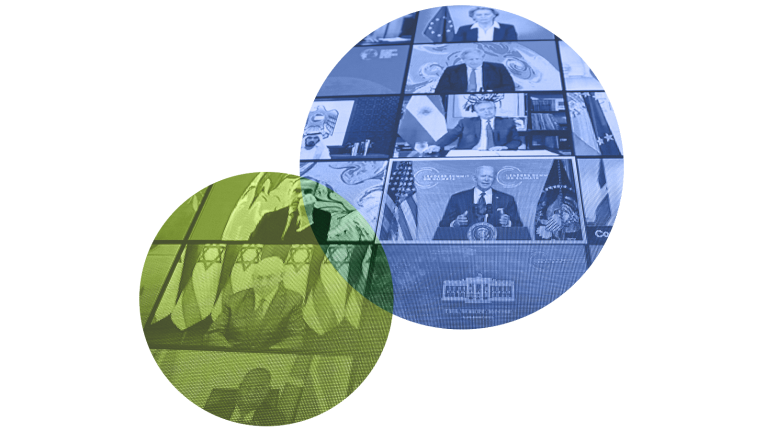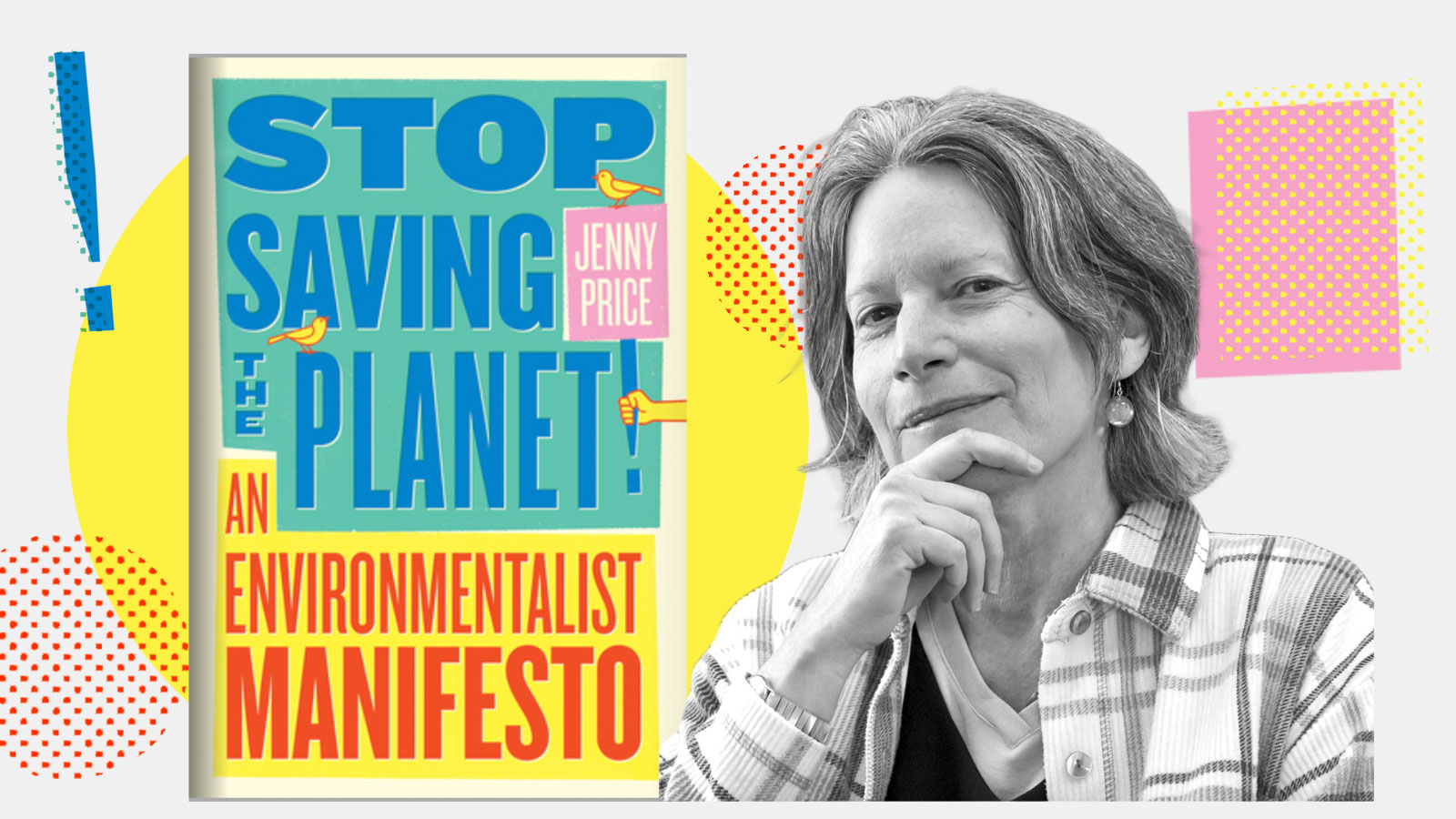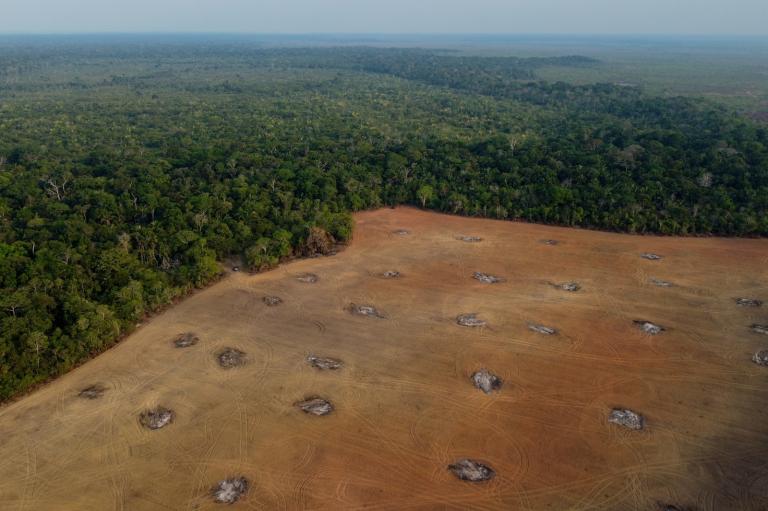Jenny Price, historian, artist, author, and Ivy League academic, thinks most environmentalists are sabotaging their own cause. Shouldering their tote bags through the organic aisle at the grocery store, they miss the bigger problem tearing the planet to pieces: the same system that is the source of their own affluence.
Price’s new book Stop Saving the Planet! An Environmentalist Manifesto, is a slim broadside, the sort of thing you can whip through in a few hours. Unlike her previous book, Flight Maps: Adventures with Nature in Modern America, which is a carefully nuanced examination of the strange way Americans think about nature, this one is a furious polemic, leavened with humor. Price acknowledges, in passing, that the fossil fuel industry and its backers are the biggest reason environmentalists haven’t made more progress, but all the rest of the blame in this story goes to the environmentalists themselves.
Price’s basic argument comes from the long-established observation that many people see the environment as something distant and beautiful that they need to save, the mountains where they go backpacking, the jungle in a David Attenborough documentary. But in reality, Price argues, the environment is not just “out there”; it’s our food, the wood in our houses, and the metals in our computers. It’s “in here.” When people focus on saving the planet, it allows them to feel good about making tiny, token efforts without changing the fundamental tenets of the polluting system that fouls lakes, swallows cities in smog, and also gets your Amazon package delivered and supports your job. That is, the economy as we know it.
Of course, on some level most environmentalists realize that the environment is “in here” and that they are fundamentally a part of it. That’s why they recycle and compost and buy green products. On a video call as part of her book launch , I started by asking why those individual measures didn’t undermine her argument.
The interview is condensed and edited for accuracy and clarity.
Q. I think a lot of people would read this and say, “I understand the environment isn’t just “out there, I understand that I’m part of the environment, that’s why I recycle, that’s why I buy green products.” Why don’t you like those individual measures?
A. The little things aren’t saving the planet. When you change that light bulb that’s not beating back climate change. It’s sort of like one plus one equals 100. It’s meaningless. It doesn’t all add up.
The environment is really the only major global crisis that we assume you can solve from your kitchen. We don’t assume you can solve the Middle East crisis, or child poverty, or the immigration problem even though your daily decisions are very bound up with those problems. We have to stop believing that we can solve it from our kitchens and start working for big system changes.
Q. What’s wrong with people being proud of the little things they are doing to save the planet?
A. The “save the planet” approach allows affluent environmentalists, the people who contribute the most pollution and suffer the least, to continue to change environments horribly, atrociously, to create our stuff and wealth, but to think they are doing something about it. I’m not saying it’s all hypocrisy — I think there’s a lot of good intentions when people buy a Prius or recycle plastic, but good intentions aren’t good enough ultimately.
Instead of saving the planet I want people to think about changing the environment. I want people to not shy away from the fact that we have to change environments to live. An ant changes environments to live, a microbe changes environments to live. Don’t be afraid of saying you are going to change environments. It’s how you do it, not whether you do it.
Q. So up to this point I’m right with you. But once I accept that we need to change environments to live, I start asking how we work closely with industries to figure out how they can provide the materials we need without polluting, instead of shutting them down. But that’s just tweaking, incremental steps, and you want to take much bigger steps, right?
A. We are way past time where we can use our economy that maximizes profits and growth instead of health and well being to solve the problems that it creates. And yet what are the big solutions? Buy stuff, it’s green growth, it’s carbon trading, it’s market solutions.
Unless you change the fundamental structure of the markets, market solutions will never ever, ever work. And even if they do work to beat back climate change, they are not treating the root causes. We cannot go after the environmental crisis, problem by problem pollutant by pollutant.
Q. Wait, why not? That’s what we’ve done historically. You see massive pollution in the Industrial Revolution, and then you see all that coal smoke cleaned up over London. We cleaned up the Cuyahoga River in Ohio after it caught fire. It’s slow and inequitable, and we are still a long way from getting all the lead out of drinking water, but at least it’s no longer in every can of paint and gallon of gasoline. Aren’t we making progress?
A. The environmental regulations we have allow us to do marginal improvements, but they don’t address the root causes which are structural. Our economy, the engine of our society, is designed to ignore environmental and social costs. Sure, you can compare the black skies in Los Angeles from decades ago to today, and there has been improvement. But what we’ve mostly done is clean up pollution where most affluent people encounter it, and then stash it and concentrate it in low income areas. I think you have to ask whose quality of life is better? Are people who live in Cancer Alley, the strip between New Orleans and Baton Rouge where they have 150 petrochemical plants, do they think their quality of life is better than 50 years ago?
Q. We’ve talked so far about the first half of the book, and if the first half is “stop,” the second half is “start.” So what should people start doing?
A. What I’ve done is almost like a parody, but also a sincere riff on the standard listicle. You know, “10 easy things you can do to stop climate change from your kitchen,” and I’ve done “39 ways to stop saving the planet.” A lot of the things are about social change instead of individual change — joining groups, banding together. Some of it is to figure out where the worst messes are — invariably going to be in low-income areas and communities of color — and start cleaning them up. A really important one is to pay more attention to how you create wealth — rather than just paying attention to how to give it away, or use it to buy things. Then there are a whole bunch of suggestions for things to watch and read, suggestions for redefining things like environment, economy, efficiency, costs. And then there’s like, tell a freaking joke: Environmentalism is so righteous and pious, and it needs to embrace irony and humor as powerful tools.



